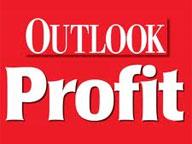Faculty News
—
A paper by Prof. Nouriel Roubini on financial crisis policy response is featured
—

Excerpt from a Reuters blog -- "Last week, Nouriel Roubini released a paper, 'A Radical Policy Response to the Rising Risks of a Depression and Financial Crisis.'" Additional coverage appeared in Reuters, CNBC, Livemint, Economic Times and Mining Weekly.
Faculty News
—

Excerpt from a Reuters blog -- "Last week, Nouriel Roubini released a paper, 'A Radical Policy Response to the Rising Risks of a Depression and Financial Crisis.'" Additional coverage appeared in Reuters, CNBC, Livemint, Economic Times and Mining Weekly.

















